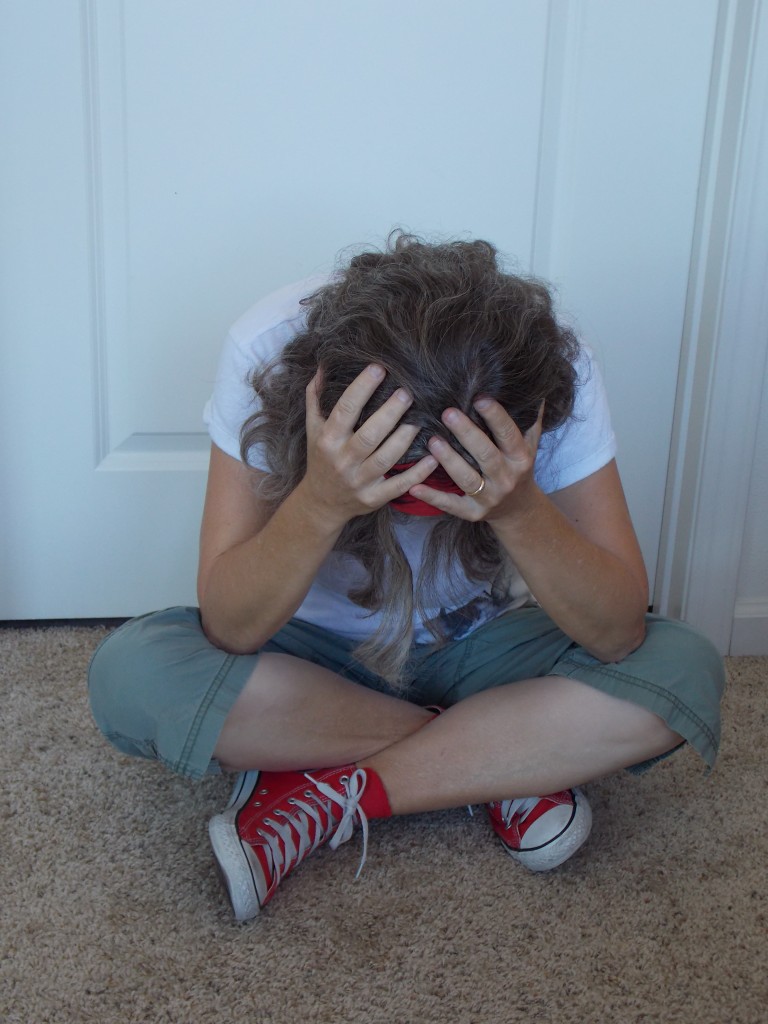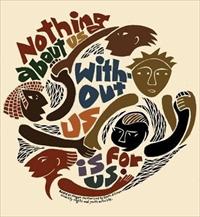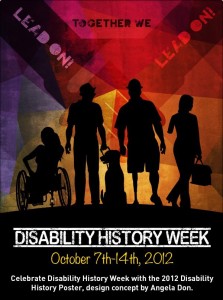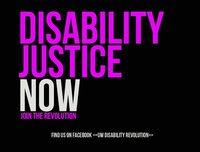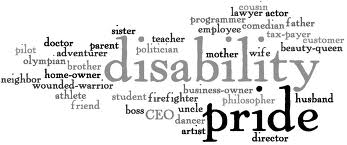On Insults in Dialogue
Here I am, late to the party, but this article on Skepchick got me thinking. Apparently, last month, there was a big blow-up about ableist language used in another post, and this Skepchick article addresses the issue. I don’t agree with much of the article, and I don’t hang out in the Skeptic community, but all that is really beside the point. What I find so interesting is the amount of words spent — both in the article and in the comments section — on the whole problem of whether it’s okay to use an ableist insult, whether anyone should care whether people are triggered, and whether we should all just get over being offended.
To me, words like “idiot” and “moron” and “stupid” are ableist, so I think that people were absolutely right to raise the issue. However, I think that there is something quite — I don’t know, odd? — about arguing over what kind of insults are allowed in dialogue. The whole problem could be solved by sticking to content, respecting the dignity of other people, and staying away from insults altogether, yes? Then you’d never end up with an ableist insult coming out of your mouth or off the keys of your computer.
The purpose of an insult is to hurt, to shame, and to demean. So is it any surprise that people who are uninvolved in the argument end up as collateral damage? Is it any wonder that sexism, racism, homophobia, transphobia, and ableism start creeping in when the insults start flying? After all, if an insult is meant to hurt, to shame, and to demean, then what better way to do it than to make implicit comparisons to people who are already hurt, shamed, and demeaned?
This is why I do my best to stay away from insults and why I’m not interested in anyone coming on my blog and launching them. It’s not just painful to the people involved; it has the potential to add to the marginalization of already marginalized people. And no, I don’t think we ought to be compiling lists of non-bigoted insults. I think we ought to be able to talk to one another with dignity about how to fix the problems in the world we live in.
But obviously, I’m a dreamer. Being harsh and cruel is so acceptable now that I often wonder why I even write these kinds of words. And then I remember that I write them so that others who feel as I do will know that they’re not alone. I write for people like myself, who would rather have an insult be a rare event and not a common and acceptable mode of communication.
I hope our culture can move back to valuing respectful dialogue. Of course, there is no reason to romanticize the past. It’s true that there have always been all kinds of disrespect and indignities visited upon millions of people, and respectful dialogue was not the experience of the many. I’ve experienced disrespect, indignity, and assault in my own life, and I come from a people that experienced it for many centuries. What I remember, though, from my earlier years as an activist, is that people who wanted to create a just world valued respecting people. They valued raising up people who were not respected into the light of dignity. They felt that the only way to create peace and justice was to model it. What I see now is exactly the opposite — that we’ve given into the idea that, because the world is a brutal and violent place, it’s somehow all right to be nasty with each other.
I don’t see our society valuing respectful dialogue any time soon — perhaps not even in my lifetime. I’m realizing that what I’ve worked so hard to do all of my adult life — to engage in civil dialogue while staying rooted in all of my emotions — is no longer of value to most people in the society I live in. This realization saddens me more than words can say.
© 2014 by Rachel Cohen-Rottenberg
Passing and Disability: Why Coming Out as Disabled Can Be So Difficult
Yesterday was National Coming Out Day. I officially came out as bisexual, and it was a celebration. No angst. No fear. No second thoughts. Just a celebration.
It was a such a contrast with coming out as disabled at the end of 2008, with all of the fear and dread that attended that decision. There have been many times since then that I’ve thought that coming out as disabled was the worst decision I’d ever made in my life. If I could have put the toothpaste back in the tube at those moments, I would have.
Of course, I’m a few years down the road now and feel much more comfortable, proud, and confident. But oh, what a process! And of course, the process never ends. I always have internalized shame, and hatred, and fear to root out of my head. And I still have to deal with a world of people who don’t understand the physical and social experience of disability. But in general, I navigate these waters much better than I did at the outset.
It’s very difficult to come out as disabled, I think, because we face the dual reality that most people a) hate our bodies absolutely unapologetically and b) consider that hatred entirely natural. It’s for this reason that they can use disability slurs constantly and think nothing of it. It’s for this reason that they can segregate and exclude us as though we’re substandard merchandise to return to the manufacturer. It is still considered natural to react with revulsion against us in a way that other groups have fought against more successfully — not entirely successfully, obviously, but more successfully.
Partly, we face this hatred because our culture worships control and denies the fragile and ever-changing life of the body. Partly, we face this hatred because the medical model has taken over as a metaphor for human life. People are no longer evil. People no longer make bad choices. People are no longer victimized by oppression. People no longer act out of ignorance, or selfishness, or greed. No. Now they’re sick, crazy, brain-dead, retarded, mentally ill, have low IQs, and on and on.
In the face of this hatred, it’s very, very difficult to convince people that you love your disabled body because it’s the one you live in. You say that you love your body, and people look at you as though you don’t quite understand your own reality.
My body hurts a lot these days. But I still love it. It’s the body I was born with. It enables me to experience life. Without it, I’d have no life at all. I might not love every sensation in my body, but I love my body, even on the hardest days, because it gives me life.
© 2013 by Rachel Cohen-Rottenberg
Doing Social Justice: Thoughts on Ableist Language and Why It Matters
The economy has been crippled by dept.
You’d have to be insane to want to invade Syria.
They’re just blind to the suffering of other people.
Only a moron would believe that.
Disability metaphors abound in our culture, and they exist almost entirely as pejoratives. You see something wrong? Compare it to a disabled body or mind: Paralyzed. Lame. Crippled. Schizophrenic. Diseased. Sick. Want to launch an insult? The words are seemingly endless: Deaf. Dumb. Blind. Idiot. Moron. Imbecile. Crazy. Insane. Retard. Lunatic. Psycho. Spaz.
I see these terms everywhere: in comment threads on major news stories, on social justice sites, in everyday speech. These words seem so “natural” to people that they go uncritiqued a great deal of the time. I tend to remark on this kind of speech wherever I see it. In some very rare places, my critique is welcome. In most places, it is not.
When a critique of language that makes reference to disability is not welcome, it is nearly inevitable that, as a disabled person, I am not welcome either. I might be welcome as an activist, but not as a disabled activist. I might be welcome as an ally, but not as a disabled ally. I might be welcome as a parent, but not as a disabled parent. That’s a lot like being welcomed as an activist, and as an ally, and as a parent, but not as a woman or as a Jew.
Many people have questions about why ableist speech matters, so I’ll be addressing those questions here. Please feel free to raise others.
1. Why are you harping so much on words, anyway? Don’t we have more important things to worry about?
I am always very curious about those who believe that words are “only” words — as though they do not have tremendous power. Those of us who use words understand the world through them. We use words to construct frameworks with which we understand experience. Every time we speak or write, we are telling a story; every time we listen or read, we are hearing one. No one lives without entering into these stories about their fellow human beings. As Arthur Frank writes:
“Stories work with people, for people, and always stories work on people, affecting what people are able to see as real as possible, and as worth doing or best avoided. What is it about stories – what are their particularities – that enables them to work as they do? More than mere curiosity is at stake in this question, because human life depends on the stories we tell: the sense of self that those stories impart, the relationships constructed around shared stories, and the sense of purpose that stories both propose and foreclose.” (Frank 2010, 3)
The stories that disability metaphors tell are deeply problematic, deeply destructive, and deeply resonant of the kinds of violence and oppression that disabled people have faced over the course of many centuries. They perpetuate negative and disempowering views of disabled people, and these views wind their ways into all of the things that most people feel are more important. If a culture’s language is full of pejorative metaphors about a group of people, that culture is not going to see those people as fully entitled to the same housing, employment, medical care, education, access, and inclusion as people in a more favored group.
2. What if a word no longer has the same meaning it once did? What’s wrong with using it in that case?
Ah yes. The etymology argument. When people argue word meanings, it generally happens in a particular (and largely unstated) context. With regard to ableist metaphors, people argue that certain meanings are “obsolete,” but such assertions fail to note the ways in which these “obsolete” words resonate for people in marginalized groups.
For example, I see this argument a great deal around the word moron, which used to be a clinical term for people with an intellectual disability. I have a great-aunt who had this label and was warehoused in state hospitals for her brief 25 years of life. So when I see this word, it resonates through history. I remember all of the people with this designation who lived and died in state schools and state mental hospitals under conditions of extreme abuse, extreme degradation, extreme poverty, extreme neglect, and extreme suffering from disease and malnutrition. My great-aunt lay dying of tuberculosis for 10 months under those conditions in a state mental hospital. The term moron was used to oppress human beings like her, many of whom are still in the living memory of those of us who have come after.
Moron — and related terms, like imbecile and idiot – may no longer be used clinically, but their clinical use is not the issue. They were terms of oppression, and every time someone uses one without respect for the history of disabled people, they disrespect the memory of the people who had to carry those terms to their graves.
3. What’s wrong with using bodies as metaphors, anyway?
Think about it this way: Consider that you’re a woman walking down the street, and someone makes an unwanted commentary on your body. Suppose that the person looks at you in your favorite dress, with your hair all done up, and tells you that you are “as fat as a pig.” Is your body public property to be commented upon at will? Are others allowed to make use of it — in their language, in your hearing, without your permission? Or is that a form of objectification and disrespect?
In the same way that a stranger should not appropriate your body for his commentary, you should not appropriate my disabled body — which is, after all, mine and not yours — for your political writing or social commentary. A disabled body should not appear in articles about how lame that sexist movie is or how insane racism is. A disabled body should be no more available for commentary than a nondisabled one.
The core problem with using a body as a metaphor is that people actually live in bodies. We are not just paralyzed legs, or deaf ears, or blind eyes. When we become reduced to our disabilities, others very quickly forget that there are people involved here. We are no longer seen as whole, living, breathing human beings. Our bodies have simply been put into the service of your cause without our permission.
4. Aren’t some bodies better than others? What’s wrong with language that expresses that?
I always find it extraordinary that people who have been oppressed on the basis their physical differences — how their bodies look and work — can still hold to the idea that some bodies are better than others. Perhaps there is something in the human mind that absolutely must project wrongness onto some kind of Other so that everyone else can feel whole and free. In the culture I live in, disabled bodies often fit the bill.
A great deal of this projection betrays a tremendous ignorance about disability. I have seen people defend using mental disabilities as a metaphor by positing that all mentally disabled people are divorced from reality when, in fact, very few mental disabilities involve delusions. I have seen people use schizophrenic to describe a state of being divided into separate people, when schizophrenia has nothing to do with multiplicity at all. I have seen people refer to blindness as a total inability to see, when many blind people have some sight. I have seen people refer to deafness as being locked into an isolation chamber when, in fact, deaf people speak with their hands and listen with their eyes (if they are sighted) or with their hands (if they are not).
Underlying this ignorance, of course, is an outsider’s view of disability as a Bad Thing. Our culture is rife with this idea, and most people take it absolutely for granted. Even people who refuse to essentialize anything else about human life will essentialize disability in this way. Such people play right into the social narrative that disability is pitiful, scary, and tragic. But those of us who inhabit disabled bodies have learned something essential: disability is what bodies do. They all change. They are all vulnerable. They all become disabled at some point. That is neither a Good Thing nor a Bad Thing. It is just an essential fact of human life.
I neither love nor hate my disabilities. They are what they are. They are neither tragic nor wonderful, metaphor nor object lesson.
5. Disabled people aren’t really oppressed. Are they?
Yes, disabled people are members of an oppressed group, and disability rights are a civil rights issue. Disabled people are assaulted at higher rates, live in poverty at higher rates, and are unemployed at higher rates than nondisabled people. We face widespread exclusion, discrimination, and human rights violations. For an example of what some of the issues are, please see the handy Bingo card I’ve created, and then take some time over at the Disability Social History Project.
6. If my disabled friend says it’s okay to use these words, doesn’t that make it all right to use them?
Please don’t make any one of us the authority on language. It should go without saying, but think for yourself about the impact of the language you’re using. If you stop using a word because someone told you to, you’re doing it wrong. It’s much better if you understand why.
7. I don’t know why we all have to be so careful about giving offense. Shouldn’t people just grow thicker skins?
For me, it is not a question of personal offense, but of political and social impact. If you routinely use disability slurs, you are adding to a narrative that says that disabled people are wrong, broken, dangerous, pitiful, and tragic. That does not serve us.
8. Aren’t you just a member of the PC police trying to take away my First Amendment rights?
No. The First Amendment protects you from government interference in free speech. It does not protect you from criticism about the words you use.
9. Aren’t you playing Oppression Olympics here?
No. I’ve never said that one form of oppression is worse than another, and I never will. In fact, I am asking that people who are marginalized on the basis of the appearance or functioning of their bodies — on the basis of gender identity, race, ethnicity, sexual orientation, class, size, and disability — get together and talk about the ways in which these oppressions weave through one another and support one another.
If you do not want disability used against your group, start thinking about what you’re doing to reinforce ableism in your own speech. If you do not want people of color to be called feeble-minded, or women to be called weak, or LGBT people to be called freaks, or fat people to be called diseased, or working-class people to be called stupid — all of which are disability slurs — then the solution isn’t to try to distance yourself from us and say, No! We are not disabled like you! The solution is to make common cause with us and say, There is nothing wrong with being disabled, and we are proud to stand with you.
10. Why can’t we use disability slurs when the target is actually a nondisabled person?
To my knowledge, the president of the United States is not mentally disabled, and yet his policies have been called crazy and insane. Most Hollywood films are made by people without mobility issues, and yet people call their films lame. Someone who has no consciousness of racism or homophobia will be called blind or deaf to the issues, and yet, such lack of consciousness runs rampant among nondisabled people.
So why associate something with a disability when it’s what nondisabled people do every single day of the week? As far as I can see, lousy foreign policy, lousy Hollywood films, and lousy comments about race and sexual orientation are by far the province of so-called Normal People.
So come on, Normal People. Start owning up to what’s yours. And please remember that we disabled folks are people, not metaphors in the service of your cause.
References
Disability Social History Project. http://www.disabilityhistory.org. Accessed September 14, 2013.
Facebook. “Disability and Representation.” https://www.facebook.com/photo.php?fbid=638151876196123&set=a.535870946424217.126038.447484845262828&type=1. Accessed September 14, 2013.
Frank, Arthur W. Letting Stories Breathe: A Socio-Narratology. Chicago, IL: The University of Chicago Press, 2010.
© 2013 by Rachel Cohen-Rottenberg
I Am Now Officially a Bitter Crip!
As many of you know, I have been working very hard at being a bitter crip. I critique the hell out of everything. I write about inspiration porn. I analyze media stories about disability. I complain loudly at the merest hint of ableist rhetoric. I even write about people giving me grief at the post office and in the check-out line.
And yet, until yesterday, I’d never been called a bitter crip. Not once. Not ever. After working so hard at it for so long, I’d just never received the recognition I craved. It was all a trial and a tribulation.
I was beginning to lose hope. After all, I’m 55 years old and I’ve been in a state of entirely justifiable outrage deep and abiding bitterness for a long time. I thought, holy crap, if I haven’t made it to bitter crip status at this point, maybe I should just give it up and post cat videos.
But then I wrote a piece about a beer commercial and… Wow! You should see the comments I got! Some of them actually made it out of moderation and onto my blog. Others were in such thorough violation of my simple and intuitive “Don’t be nasty to the blogger” policy that I didn’t let them through. But still! I thought I’d reached the golden pinnacle of bitter cripdom when I received the following comment on Thursday:
“Jesus, you are a fucking miserable person. That was a nice ad with a nice message. I think you’ve expressed your own insecurities far more than you’ve expressed any flaws in the advertisement.”
Being called a “fucking miserable person” is pretty close to being called a bitter crip, but it’s not quite the same. In my desperation, I kept trying to make it the same, but who was I fooling? I felt like such a wannabe.
But then on Friday, I finally made it. I was so excited! Here is the comment that put me over the top:
“OMG!! Are you for real??? Bitter, at all??? This was an incredible commercial. No, ‘regular guys’ wouldn’t be so agile in using wheelchairs to play basketball, but the thought that they might attempt it so that their friend, who depends on a wheelchair can play a legitimate game of basketball with them is the message!!!!!!! You don’t get that???
You must live a very sad, sorry, pitiful life… wheelchair or no wheelchair…”
DINGDINGDINGDINGDING! Bonus points for gratuitous use of exclamation points and question marks!!!!!!
Gosh! It’s such a moment! And so unexpected! I hardly know what to say. I could never have gotten here on my own, that’s for sure. It takes a village to raise a bitter crip, and thanks are due all around.
Thank you to all of my fellow bitter crips for being such INSPIRING role models. OMG! There are too many of you to list here, but you know who you are!
Thank you to all of the people who have left nasty comments on my blogs over the years. You have kept hope alive that, one day, I might enter the ranks of bitter cripdom!
Thank you to all of the people who have told me, throughout the course of my life, that I should just be grateful and shut the fuck up and stop thinking about things so much. Without you, I’d never have dreamed this big!
And finally, to the lovely lady who called me a bitter crip: Thank you! This is a moment that I will cherish forever.
Let the celebration begin!
(You can find the lyrics here.)
© 2013 by Rachel Cohen-Rottenberg
A Word about Disability Terminology
As commenters on this blog, you are welcome to use whatever disability terminology you wish: disabled person, person with disabilities, differently abled, special needs, and so on. I prefer identity-first language (disabled person), but terminology is a matter of personal choice, and I follow a policy of non-interference in other people’s choices.
I don’t mind discussions about the relative merits of different terminologies, but they have to be in the proper context. On this blog, the proper context would be a post that focuses on terminology issues. In that context, everyone is welcome to weigh in. In any other context, I would consider raising the issue a derailment from the focus of the discussion.
No matter what the context, no one is welcome to advise, cajole, or pressure anyone else to use a different kind of terminology, and no one is welcome to tell people they’re doing it wrong. Please respect the ways in which other people wish to be addressed. So, for example, it’s out of line to respond to I’d prefer to be called a disabled person with You’ll always be a person first to me!
Seriously. Don’t do that.
Further, if a person has made a very clear request to be called by one term, and someone else insists on using another term to address that particular person, it is fine for the first person to restate the preference and ask that the other person abide by it.
The reason for all of this is simple: We are all fighting a hard battle. If the terminology that people have chosen helps them to move through the world feeling empowered and beautiful, I want people to feel that their choices are supported.
Not every use of a particular term needs to be an occasion for weighing in on your feelings about it. Please show respect for the choices of others, even if you disagree with them.
Thank you.
© 2013 by Rachel Cohen-Rottenberg

